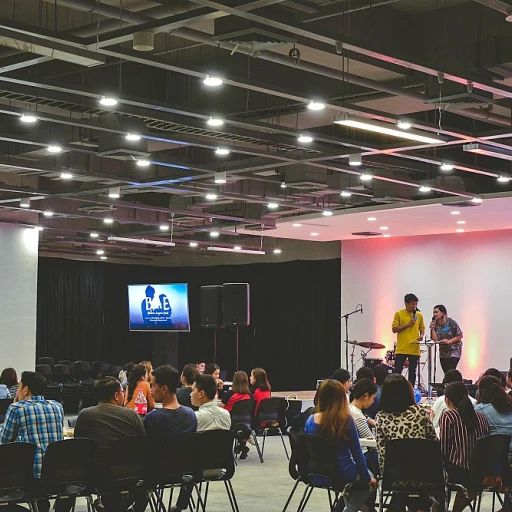
The Importance of HR Appreciation Day
Highlighting the Crucial Role of HR Appreciation
Every organization, regardless of size or industry, is powered by its people. Within this framework, human resource professionals play a pivotal role, ensuring a harmonious work environment that supports employee engagement, professional development, and the fostering of an inclusive company culture. Celebrating these professionals with a dedicated appreciation day underscores the immense value they bring to their teams and highlights the vital impact they have on organizational success. The effort and dedication shown by HR professionals are integral to every aspect of the workplace—from facilitating employee recognition to supporting initiatives around equity and inclusion. By instituting a national or international day specifically for HR, companies can draw attention to the often overlooked but critical efforts of this team. While HR Appreciation Day can serve as a spotlight moment, it's important to consistently recognize the hard work done throughout the year. This not only honors HR professionals but also motivates continuous improvement and team building within the company. Regular acknowledgment helps in creating an atmosphere where every employee feels valued and appreciated, enhancing overall organizational development. A formal day of appreciation allows organizations to celebrate internally but also invites broader recognition across industries, acknowledging the essential nature of these roles. This day can act as a catalyst for HR teams, inspiring them to further strengthen their communication strategies and foster a work environment that thrives on mutual respect and recognition. Read more about the impact of ethical conduct on long-term organizational success for insights into organizational sustainability and the importance of valuing ethical behavior articulated by HR professionals.The Role of Communication in HR
Communication: The Cornerstone of HR
In a thriving organization, the role of communication in human resources cannot be overstated. Effective communication forms the backbone of any successful HR department, fostering a sense of community and collaboration that enhances both employee engagement and team building initiatives. As we celebrate HR Professionals Day, it's crucial to acknowledge how impactful clear communication can be in aligning individual roles with the broader mission of the company. Proper channels of communication ensure that every employee, from entry-level staff to seasoned professionals, feels valued and heard. This, in turn, contributes to a positive company culture where appreciation extends beyond a single day.Building a Culture of Open Communication
Creating an environment where communication flows freely involves more than just announcing an open-door policy. It requires an investment in professional development aimed at teaching human resource professionals the nuances of both verbal and non-verbal communication. By prioritizing employee recognition and equity inclusion, organizations can cultivate a work environment where employees are motivated to share their ideas and feedback. Whether it's national or international HR recognition days, these occasions serve as a reminder to review and refine the communication strategies within the company. While appreciating those efforts is important, sustaining that recognition throughout the year should be a focal point. For more insights into creating effective communication ethics within an organization, consider the strategies highlighted in the impact of ethical conduct on long-term organizational success. Celebrate your HR team not just today, but by embedding practices that elevate communication, ensuring your employees feel heard every day of the year.Challenges in HR Communication
Overcoming Communication Barriers in HR
In the dynamic world of human resources, communication plays a critical role in fostering a thriving work environment and driving employee engagement. Yet, it is not without its challenges. HR professionals often grapple with obstacles that hinder effective communication between teams and individuals within a company. Recognizing these challenges is the first step toward devising solutions that enhance interaction and clarity. One significant challenge is the diversity of communication styles within an organization. Employees come from varied cultural and professional backgrounds, each with unique approaches to expressing ideas and concerns. This diversity can lead to misunderstandings and conflicts if not managed effectively. HR must champion equity and inclusion, ensuring every voice is appreciated and respected. The rapid pace of technological advancement also presents its own set of hurdles. Although digital tools have revolutionized the way we communicate, they can also create an impersonal atmosphere, contributing to isolation and disengagement among employees. HR departments must balance technological efficiency with nurturing a supportive company culture. Another challenge is ensuring consistent and transparent communication. With organizational structures becoming more complex, information can be easily misconstrued or lost in translation. HR must coordinate communication efforts to maintain clarity and alignment with the organization's goals. For those interested in exploring strategies to overcome these communication barriers, further insights can be found in this enhancing employee engagement through strategic HR management article. By addressing these challenges head-on, HR professionals can foster a more cohesive, motivated, and engaged team throughout the year.Strategies for Effective HR Communication
Enhancing Communication in Human Resources
Effective communication is essential in the dynamic field of human resources. It serves as the backbone of any successful organization, ensuring that employees feel heard, valued, and engaged. By fostering clear and open communication channels, HR professionals can significantly improve the work environment and employee satisfaction.- Cultivating a Transparent Work Culture: Establishing a transparent culture is crucial for building trust within an organization. Regular updates and open forums help in connecting teams and keeping everyone informed about changes and developments. Transparency encourages a two-way dialogue, which is vital for creating an inclusive work culture.
- Utilizing Technology for Efficient Communication: In today’s digital age, leveraging technology helps streamline HR processes and communication. Platforms designed for team collaboration can help people stay connected, especially in remote work settings. Technology can also aid in tracking employee development and recognition throughout the year.
- Training and Development Programs: Organizations should invest in training programs focusing on communication skills. By developing these skills, HR can enhance their ability to convey messages clearly and effectively across all levels of the company. This not only improves daily interactions but also contributes to professional development.
- Feedback Mechanisms: Creating effective feedback mechanisms is another strategy to enhance communication. Providing employees with regular opportunities to give and receive feedback fosters an environment of mutual respect and continuous improvement. It is important to celebrate constructive feedback as a tool for growth.
- Equity and Inclusion in Communication: Promoting equity and inclusion in communication practices ensures that everyone's voice is heard, regardless of their position within the company. By implementing policies that celebrate diversity, HR can help create a more inclusive and fair organizational culture.
Recognizing HR Efforts Beyond Appreciation Day
Beyond the Day: Value in Continuous Recognition
Appreciation shouldn't be constrained to a single day; it should permeate every aspect of an organization's culture. While HR appreciation day is a moment to celebrate the hard work and dedication of HR professionals, continuous recognition throughout the year fosters a work environment where everyone feels valued. Regular employee appreciation and recognition plays a pivotal role in employee engagement and creates an inclusive company culture that celebrates diversity, equity, and inclusion.
Consistent recognition recognizes the ongoing efforts of HR teams and individual professionals, reinforcing the significance of their contributions to the organization's success. This requires ongoing communication and an understanding of each team member's impact. It's not just about acknowledging their work but understanding how their work helps propel the organization forward.
There are various ways to celebrate and appreciate an HR team beyond the professional day. Initiatives like team building activities or providing opportunities for professional development can make a substantial difference. Such endeavors not only recognize efforts but also contribute to the personal and professional growth of employees within the organization.
Moreover, integrating feedback mechanisms enables HR professionals to voice their experiences, fostering a dynamic of continuous improvement. Acknowledging both trials and triumphs throughout the year can transform the company's approach to human resource management, nurturing a culture of growth and collaboration.













